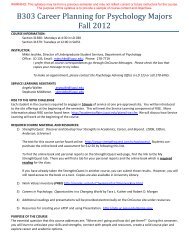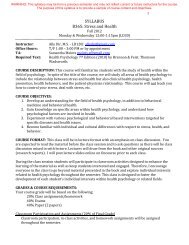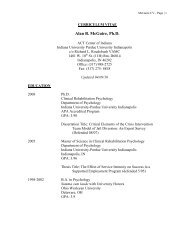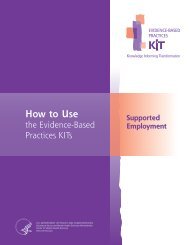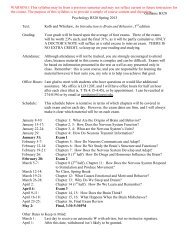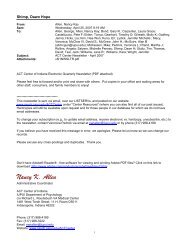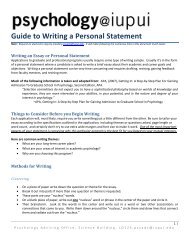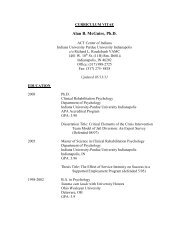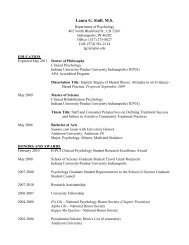Supported Employment: Training Frontline Staff - SAMHSA Store ...
Supported Employment: Training Frontline Staff - SAMHSA Store ...
Supported Employment: Training Frontline Staff - SAMHSA Store ...
Create successful ePaper yourself
Turn your PDF publications into a flip-book with our unique Google optimized e-Paper software.
In addition to engaging José, you may also find it<br />
helpful to meet with José’s family. José’s parents<br />
are concerned that the stress of working may<br />
cause him to have a relapse. You could explain<br />
how appropriate job selection and support could<br />
minimize the stress to which José is exposed and<br />
could even reduce his stress level by giving him<br />
something meaningful to do with his time.<br />
To reinforce that work is an important goal for<br />
José, the meetings with José’s relatives may be most<br />
effective if they take place in their home and if they<br />
include José. Before speaking with his parents, ask<br />
José to sign your agency’s Release of Information<br />
Form.<br />
Finally, inform team members of each step in<br />
the engagement process, including the initial<br />
meeting, contacts with family or other supporters,<br />
and possible job interests. If you encounter<br />
difficulties engaging José or addressing his parents’<br />
concerns, elicit feedback and advice from other<br />
team members. Teamwork ensures that everyone<br />
is supportive of José’s goals and has input into<br />
pursuing them.<br />
In summary, establishing a relationship with<br />
consumers creates a foundation for the rest of<br />
your work. It is critical to connect with consumers,<br />
family and other supporters, and treatment team<br />
members to create an environment that supports<br />
consumers’ work interests and goals.<br />
Benefits counseling<br />
Fear of losing benefits (for example, Social Security<br />
income or health insurance) is a major reason<br />
that consumers do not seek employment. For this<br />
reason, it is important for all consumers to know<br />
how work may affect their benefits.<br />
All consumers who are interested in working should<br />
receive benefits counseling to guide their plan<br />
for starting work. Once consumers are working,<br />
benefits counseling helps consumers manage their<br />
benefits and health care coverage as they increase<br />
hours and earnings. Some evidence shows that<br />
consumers who received benefits counseling earn<br />
more than consumers who did not.<br />
You are responsible for ensuring that consumers<br />
access benefits counseling when they start SE<br />
services and when changes occur in their work<br />
status. Typically, a benefits specialist who has<br />
comprehensive information about benefits and<br />
work incentives provides benefits counseling. If<br />
your agency does not employ a benefits specialist,<br />
ask your SE leader to find one in your area. For<br />
more information, see Building Your Program in<br />
this KIT.<br />
As an employment specialist, you should be able<br />
to communicate basic information about how work<br />
affects consumers’ benefits. Expect to participate<br />
in additional training to become familiar with the<br />
following terms:<br />
• Medicaid and 1619B Medicaid;<br />
• Medicaid for the Working Disabled;<br />
• Medicare;<br />
• Supplemental Security Income (SSI);<br />
• Social Security Disability Income (SSDI);<br />
• Plan for Achieving Self-Support (PASS);<br />
• Impairment-Related Work Expense;<br />
• Substantial Gainful <strong>Employment</strong> (SGA);<br />
• Ticket to Work;<br />
• expedited reinstatement for benefits; and<br />
• The Department of Housing and Urban<br />
Development (HUD) mandatory earned income<br />
inclusion.<br />
Module 2 6 Referral, Engagement, and Benefits Counseling



